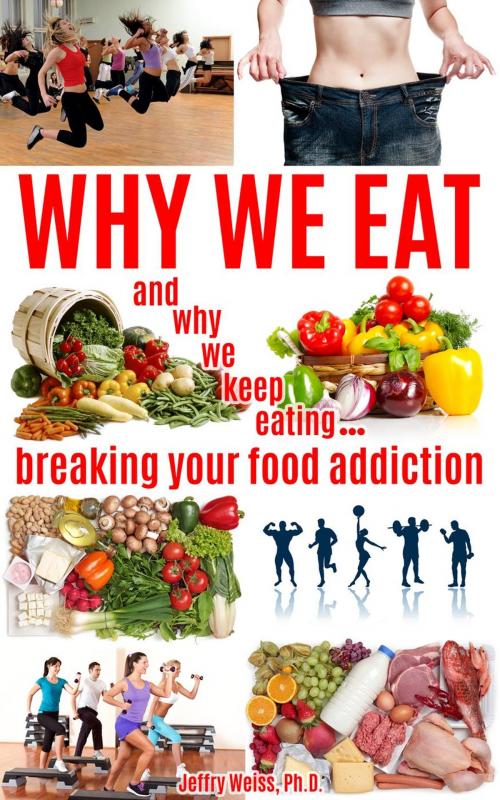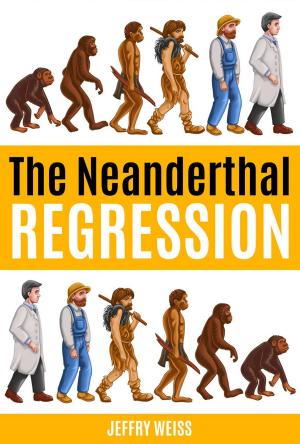Why We Eat
why we eat series, #1
Nonfiction, Health & Well Being, Health, Nutrition & Diet, Nutrition, Weight Loss, Diets| Author: | Jeffry Weiss | ISBN: | 9781514264386 |
| Publisher: | Jeffry Weiss | Publication: | January 29, 2016 |
| Imprint: | Language: | English |
| Author: | Jeffry Weiss |
| ISBN: | 9781514264386 |
| Publisher: | Jeffry Weiss |
| Publication: | January 29, 2016 |
| Imprint: | |
| Language: | English |
Since 1950, the amount of nutritional information available to the public has roughly doubled every seven years. During that same period (1950-2000), obesity rose by 214% until today, where 64.5 percent of adult Americans (about 127 million) are categorized as being overweight or obese. In that light, one might conclude that there is a direct correlation between knowledge of obesity and obesity itself.
The point is people aren't foolish. They know that a salad is better for them than a pizza; that grilled chicken is better than a smothered burrito; that tofu is better than hamburger; that fresh fruits and vegetables are better than candy bars and French fries. People are swimming in information. They are anesthetized by information. More has not, and will not, lead to enlightened behavior, less craving for food, or improved health.
The strategy of focusing on what we eat is turning people away from the real problem. That message has been unsuccessful for decades. Further studies, weight loss programs, and media emphasis on the same note, will not bring the desired results.
The first and foremost question to ask is why we eat.
Early man ate only enough to satisfy his appetite. People today continue to eat beyond the point of satiation for a very different reason: to gain euphoric feeling through the chemicals released by the foods we consume. And what are these chemicals that are so powerful as to induce behaviors that are sometimes irrational and often detrimental to our health and continued evolution? Endorphins.
Endorphins are neurochemicals in the body that reward us with a euphoric feeling when we interact with certain stimuli such as food. Endorphins are at the very core of all of our motivations. The satisfaction or pleasure we derive from our pursuit of stimuli is measured by endorphin release.
There are, in fact, four OTHER ways to trigger their release. And while food may be the quickest and most accessible means of generating this response, in actually it produces the most fleeting effect. The other methodologies are expanded upon in the body of the text, revolutionizing the way we will attack obesity in this country.
Since 1950, the amount of nutritional information available to the public has roughly doubled every seven years. During that same period (1950-2000), obesity rose by 214% until today, where 64.5 percent of adult Americans (about 127 million) are categorized as being overweight or obese. In that light, one might conclude that there is a direct correlation between knowledge of obesity and obesity itself.
The point is people aren't foolish. They know that a salad is better for them than a pizza; that grilled chicken is better than a smothered burrito; that tofu is better than hamburger; that fresh fruits and vegetables are better than candy bars and French fries. People are swimming in information. They are anesthetized by information. More has not, and will not, lead to enlightened behavior, less craving for food, or improved health.
The strategy of focusing on what we eat is turning people away from the real problem. That message has been unsuccessful for decades. Further studies, weight loss programs, and media emphasis on the same note, will not bring the desired results.
The first and foremost question to ask is why we eat.
Early man ate only enough to satisfy his appetite. People today continue to eat beyond the point of satiation for a very different reason: to gain euphoric feeling through the chemicals released by the foods we consume. And what are these chemicals that are so powerful as to induce behaviors that are sometimes irrational and often detrimental to our health and continued evolution? Endorphins.
Endorphins are neurochemicals in the body that reward us with a euphoric feeling when we interact with certain stimuli such as food. Endorphins are at the very core of all of our motivations. The satisfaction or pleasure we derive from our pursuit of stimuli is measured by endorphin release.
There are, in fact, four OTHER ways to trigger their release. And while food may be the quickest and most accessible means of generating this response, in actually it produces the most fleeting effect. The other methodologies are expanded upon in the body of the text, revolutionizing the way we will attack obesity in this country.















